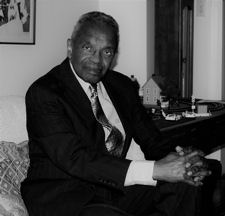American Sacrifice
October 1, 2019Podcast: Download (Duration: 16:46 — 15.4MB)
Subscribe: More
Sacrifice is a powerful, ancient, evocative word that conjures images of animals slaughtered in rituals to bind a community together in a celebratory feast for a long-awaited harvest after a drought. Sacrifice can be a visual, visceral and vivid concept that attracts our curiosity but repels us morally. Sacrifice is also described as a blessed act of holy reverence, a necessary rite to cleanse the soul of an individual or restore the hope of a people.
The concept of sacrifice is a complex religious, social and political construct whose meanings derive from cultural experiences and expectations, but I want to explore sacrifice as a political act associated with social violence. These days political and social sacrifice seems ubiquitous, from the rhetorical mobilizations at the U.S. southern border; to the ideological sacrifice of austerity for the poor and largess for the rich; to the “necessary” constructs of neoliberalism and libertarianism that emphasize privatization, deregulation, and unfettered free markets over public institutions and government services. We see the sacrificial environmental violence associated with the lack of urgency to address a rapidly changing climate.
Drill down into the data for an hour, and you will see that sacrificial thinking is the new normal. The motif of “sacrifice” or “blessed brutalities” and sanctioned violence permeate all layers of the social and cultural fabrics purporting to offer an explanatory framework for contemporary imperial American practices. Each instance of our blessed brutality—whether it is the execution of Quakers in Boston in the 17th century, the enslavement of Africans, the genocide of native people, or the abuse of wives in the early American republic—is all a distinct trajectory that is the bedrock of the American empire of sacrifice.
Yes, friends, today American sacrifice is an intentional machine gun mounted on a hill of lies that is aimed at the rule of law, the truth and role of expertise. Everywhere you turn, it seems, some form of sacrifice is rearing its head, demanding tribute and governed by an algebra of expected returns. The transactional nature of sacrifice creates unholy alliances and disturbing binary outcomes of either/or.
When we look more closely at sacrifice, we see that sacrifice is a form of violence that places itself in relation to a desired effect, so that the gain depends upon the loss or destruction of something—call this something the offering. The conscious act of sacrifice links the two. The offering might be a black rooster or a packet of tobacco, but it could just as well be a species, a landscape, the heart of a captured enemy or the youth of a nation. What matters is the necessity of this destruction within a logic that renders the destruction understandable—and worthwhile—as a means to some higher gain. Sometimes the terms are blunt, issued as a judgment: This species is common, uninteresting or of “least concern.” This landscape is worthless, remote or uninhabited—it can be destroyed. The minimal value of what stands to be destroyed will be recovered, many times over, in the projected return.
But friends, sacrifice also comes in the disguise of moral control. Just pay attention to the arguments that weave through the next housing development, the next culled species, the next police review board, the next military intervention, the next cut to the Special Olympics. Sacrifice is almost always a mechanism in which loss and gain have been made equivalent, the balance settled—like trading a mountain for jobs in the mining sector, a forest for a highway and a faster commute.
 Derrick Bell was the first Black tenured professor in the law school at Harvard, and founder of the academic discipline of critical race theory. His 1992 book Faces at the Bottom of the Well includes an allegory entitled “Space Traders,” which explores what happens when extraterrestrials make first contact with the United States—using a holographic projection of Ronald Reagan—and offer to solve all of the country’s economic and environment problems. As proof of their power, the aliens turn the Statue of Liberty into solid gold and clean the polluted air over Los Angeles and Denver. The extraterrestrials have a price for this service. All Black Americans must be given to the aliens, for purposes unknown.
Derrick Bell was the first Black tenured professor in the law school at Harvard, and founder of the academic discipline of critical race theory. His 1992 book Faces at the Bottom of the Well includes an allegory entitled “Space Traders,” which explores what happens when extraterrestrials make first contact with the United States—using a holographic projection of Ronald Reagan—and offer to solve all of the country’s economic and environment problems. As proof of their power, the aliens turn the Statue of Liberty into solid gold and clean the polluted air over Los Angeles and Denver. The extraterrestrials have a price for this service. All Black Americans must be given to the aliens, for purposes unknown.
Will African-Americans become food, pets, subjects for experimentation? Perhaps they will be feasted, protected or worshiped? The extraterrestrials provide no answers. Could this be the ultimate solution to the centuries-old “Negro Problem”? A Republican president and his administration debate the merits of the offer from the aliens and eventually decide that the American people should vote on the matter.
Of course, this outcome has the superficial veneer of being “fair,” because the outcome was “democratic.” The safety, security, and freedom of Black Americans are treated as something illusory, debatable, something that can be compromised. The historic resistance to providing Black people inalienable civil and human rights makes the results clear for the majority of white voters. “Space Traders” concludes with millions of Black Americans—much like their ancestors being loaded into the bowels of slave ships centuries before—being marched at gunpoint into the cargo holds of the alien vessels. A return is calculated, and the decision is made to execute a sacrifice.
When this book came out in 1992, I remember talking about it with Black and white friends and our reactions were reminiscent of the OJ verdict in 1995. Very different responses. Many white friends were horrified by the story, unable to believe that such a vote could happen in the year 2000 when the story was set. Many Black friends were horrified that the white people were so naïve as to believe that it could not happen. And there was still a small set of us (me included) who pondered leaving the US for what could be a better life with the aliens. Many of us said that anything might be better than this place. I was willing to take that trip on the spaceship because the unknowable future might provide me with a new hope that I lack after 400 years in America. What would it be like to live in a world where I am not vilified, minimized, objectified or pacified by a system that has struggled so desperately to obliterate me and my ancestors?
 Friends, remember the basic tenets of sacrifice. The sacrificial offering must be destructible—but also, it cannot be worthless. If anything, it must be exalted, because the destruction of its value is what renders the sacrifice worthy, even heroic. Sacrifice infuses the destruction of value with value, justifying itself not only in the prospect of a return, but also in the inherent nobility of surrender. Here the idea becomes not just dangerous, but also insidious, continuously threatening to identify destructive surrender not just as moral action, but also as the very ground of morality. To be good—to be a good citizen, a good person—is to surrender what you value, what you love, for a “higher” cause. In “Space Traders,” one of the ideas floated by the government was to create a selective service for Black people to volunteer to go with the aliens as a duty to country.
Friends, remember the basic tenets of sacrifice. The sacrificial offering must be destructible—but also, it cannot be worthless. If anything, it must be exalted, because the destruction of its value is what renders the sacrifice worthy, even heroic. Sacrifice infuses the destruction of value with value, justifying itself not only in the prospect of a return, but also in the inherent nobility of surrender. Here the idea becomes not just dangerous, but also insidious, continuously threatening to identify destructive surrender not just as moral action, but also as the very ground of morality. To be good—to be a good citizen, a good person—is to surrender what you value, what you love, for a “higher” cause. In “Space Traders,” one of the ideas floated by the government was to create a selective service for Black people to volunteer to go with the aliens as a duty to country.
As Unitarian Universalists we have the imperative as people of faith to be spiritually animated by the sacrificial violence all around us. We need to be animated enough to see the sacrificial violence in policies that appeal to our heads and ignore our hearts. We need to be animated enough to dismantle false equivalences of sacrifice. We must be animated so we can demand answers, so we can resist the duplicity of sacrifice. We must make our faith three-dimensional enough to resist sacrifices out loud. When people of faith and goodness charge head on into that sacrificial altar to destroy it, the mechanism of sacrificial thinking will be disassembled, their logic revealed, their syntax demystified, and their weapons made inoperable.
So pause for a moment at the next “justified” sacrifice you are asked to vote on or participate in, the next “trade-off sacrifice,” and dwell on these questions: What is hiding among the lines of spreadsheet calculations and seemingly innocent platitudes of this sacrifice? Where is the scapegoat and how is sacrifice being framed? How does this sacrifice hide in plain sight? Whose hopes stand to be fulfilled in this and whose losses are guaranteed? And where do I stand as a person of faith?
- American Sacrifice - October 1, 2019
Quest Monthly Print Edition
Recent Issues
Latest Spiritual Reflection Posts
Weekly Newsletter
About
Quest for Meaning is a program of the Church of the Larger Fellowship (CLF).
As a Unitarian Universalist congregation with no geographical boundary, the CLF creates global spiritual community, rooted in profound love, which cultivates wonder, imagination, and the courage to act.
Contact
Church of the Larger Fellowship Unitarian Universalist (CLFUU)
24 Farnsworth Street
Boston MA 02210

